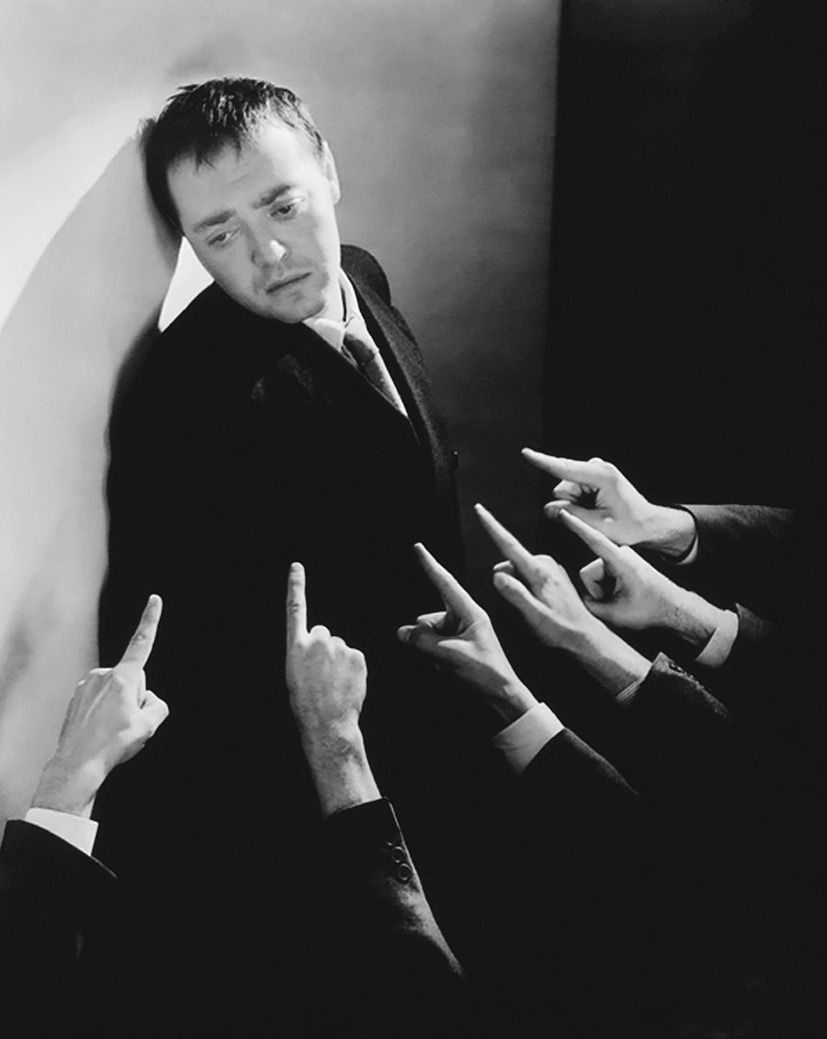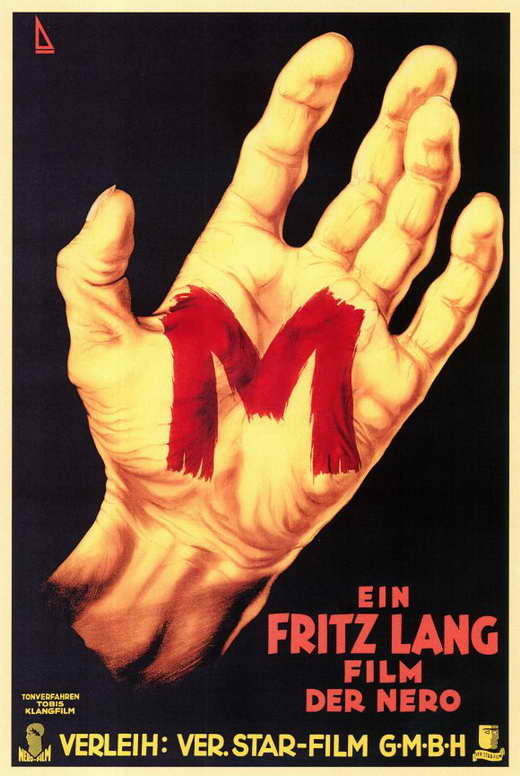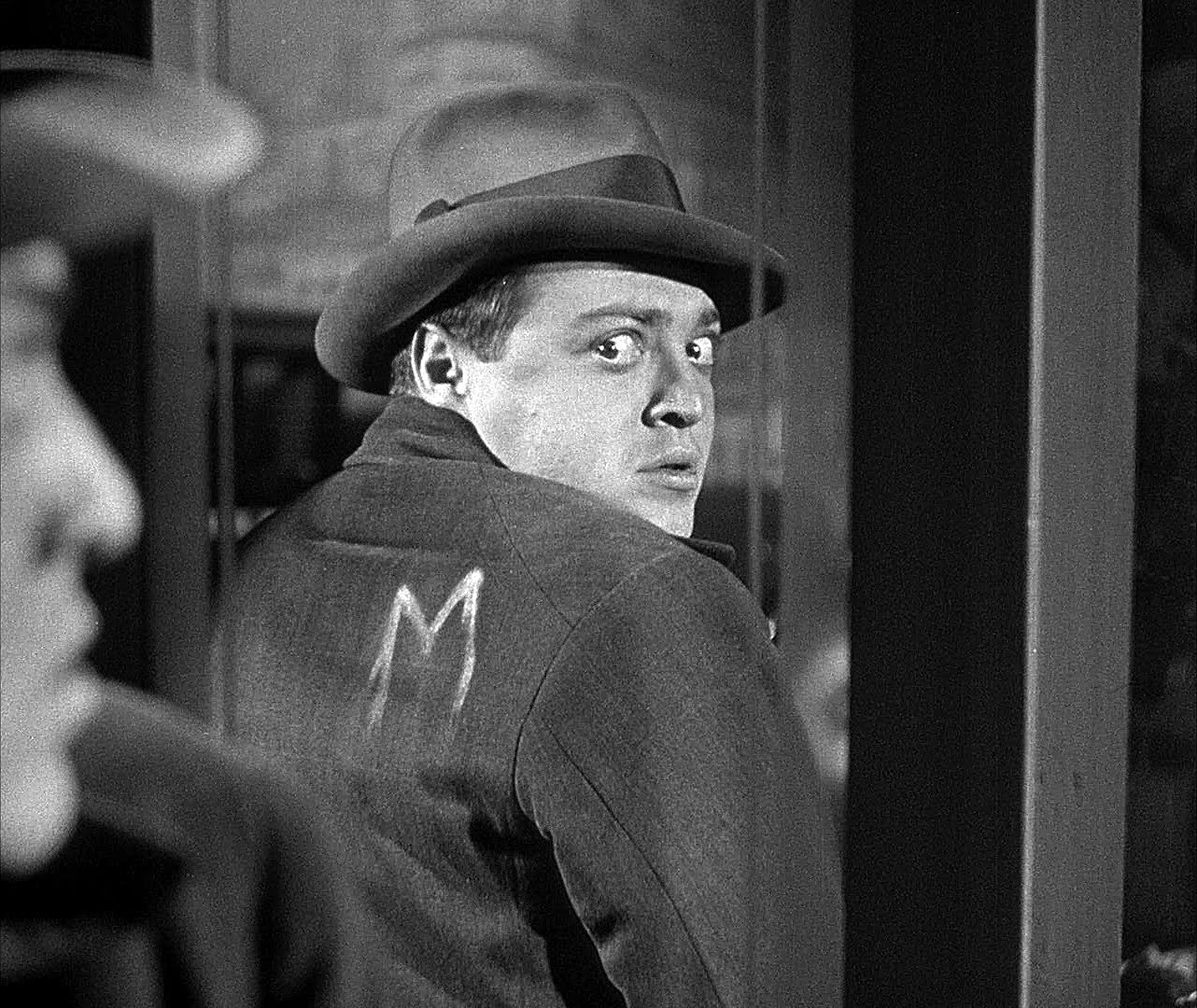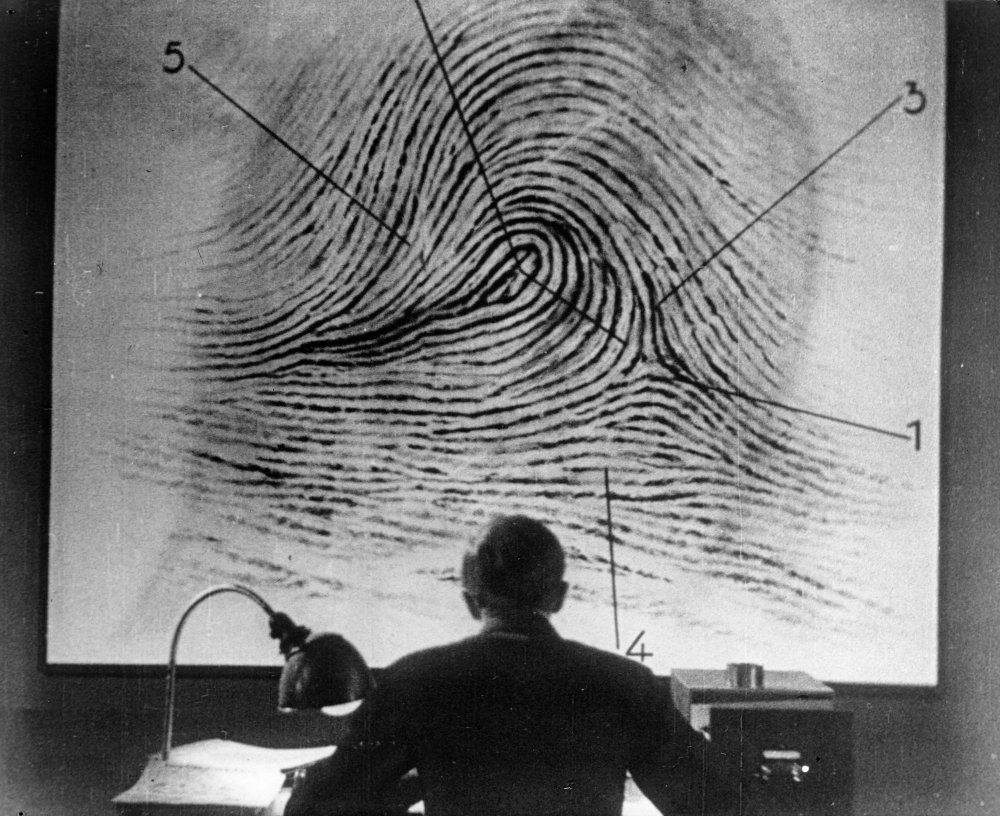Series Debut! As a kind of dark mirror to our "Over & Over" column, we've invited Team Experience to fill in some of their most shameful film history gaps and tell us about their experience. We all have gaps in our viewing with over a century of film history behind us! To kick things off here's a 'Lang-delayed' encounter for Mark. - Editor

by Mark Brinkerhoff
I first became aware of M, Fritz Lang’s seminal 1931 German thriller, while flipping through Vanity Fair’s Hollywood, a weighty, sumptuous 2000 coffee table book. Therein, opposite a cuckoo photo of Doris Day with half a dozen dyed poodles, is a haunting photo of actor Peter Lorre with the following caption...
Born—rather promisingly—in Transylvania, he looked as guilty as sin even when he was innocent, which wasn’t all that often. (He was guilty as charged in Fritz Lang’s M and here, as Raskolnikov, in Crime and Punishment.)
Who is Peter Lorre?, I thought. And what is M?
 As a devotee of the sci-fi classic, Metropolis, a groundbreaking 1927 silent film, I was a (minor) fan of Lang’s work. But even after seeing his later noirs with Gloria Grahame, The Big Heat and Human Desire, M somehow eluded me. Who knows why.
As a devotee of the sci-fi classic, Metropolis, a groundbreaking 1927 silent film, I was a (minor) fan of Lang’s work. But even after seeing his later noirs with Gloria Grahame, The Big Heat and Human Desire, M somehow eluded me. Who knows why.
The legendary director’s first “talkie,” M revolves around the hunt for a child serial killer, both judicial and extrajudicial (i.e. mob justice). It’s essentially a proto procedural, a pre-Code Law & Order, toggling between the interactions of villagers, law enforcement and the criminal underworld. This partly may be what makes M both timeless and, at times, a bit tedious for modern audiences. Inventively shot and deliberately paced, it makes for an interesting morality tale, but what exactly is the moral of this story?
From the opening shot of children playing a game of elimination to a chilling zoom-in on a chilling wanted poster, the stage is for what certainly must have been an unusual kind of film for that era. Another child soon goes missing. The town’s panic level grows. A prime suspect creepily emerges. Purportedly based on a notorious 1920s murderer, Peter Kürten , the so-called “Vampire of Düsseldorf,” M plays out a slow descent into chaos. There’s a chase, a capture, a kangaroo court, a raid, a revelation—all way to the abrupt closing shot, mothers wailing, which is as haunting as it is seemingly hasty.

Boy, Lorre sure gets to (over)play a fair share of scenes. He comes off as shifty and suspect, but there’s also surprisingly ambiguity in his acting — at least till M’s climactic court scene. He’s well matched by Otto Wernicke as the police inspector, pursuing his suspect methodically. You definitely can sense the influence that this film may have had on latter filmmakers, from Preminger to Demme. There’s gorgeous mise-en-scène throughout.
That Lang considered M to be his favorite of the films he directed is understandable. There’s plenty of meaty psychological and social analysis, a hallmark of German Expressionism. (Naturally the incoming Third Reich shamelessly lifted a “trial” scene for out-of-context use in a 1940 Nazi propaganda film.) I’m glad to have (finally) checked this one off my list. (Thank you, Criterion Channel!) It is, all in all, an effective thriller that thankfully remains readily available via Amazon, iTunes, YouTube, etc.

For those of you who have long since seen it, what say you? (And for those who have yet to watch it, carve out the time.)